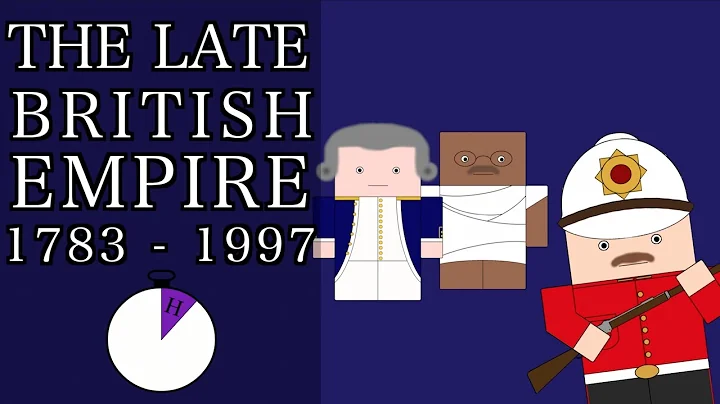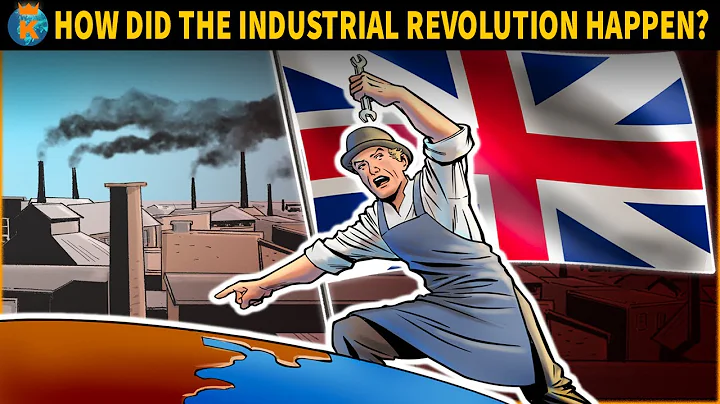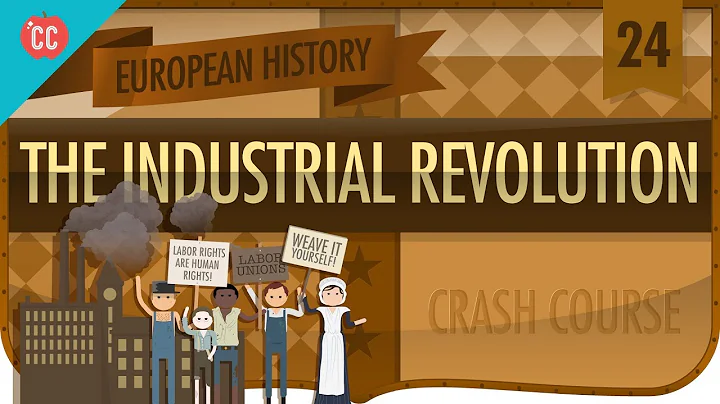The colonial system collapsed, why did the empire collapse? Enlightenment of the United States’ disintegration of British hegemony.

The picture shows the British colony at that time. It occupied 24.75% of the world's land area, and the total area accounted for a quarter of the world.
"On my territory, the sun never sets." This is a 16th-century term To describe spanish empire .
But now, when people talk about the empire on which the sun never sets, they usually think of Britain.
Why?
Let’s take a look at how big Britain was at that time:
In the 19th century, with the development of the industrial revolution , Britain became the most powerful country in the world. Its land area reached 24.75% of the world’s land area. This is a What concept?
China is big enough, but it only accounts for 6.7% of the world's land area.
is almost four times the size of China.
The most important thing is that these places are all strategic locations.
1.
The glory of the past
How strong is the empire on which the sun never sets

Britain can be regarded as the second world hegemon in human history.
How powerful is it?
In fact, Britain has been working hard for its territorial security since its founding.
From the initial pirate invasion to the later Norman , has posed a serious threat to the British living environment.
It can be said that the original British development of maritime military was entirely out of self-preservation so that it could deal with external threats to survival that it might face at any time.

Britain was not powerful at that time, but why did it become the "Empire on which the Sun Never Sets"?
This is related to a country: Spain, the first generation of world hegemon in human history.
Spain in the 16th century was very powerful. It had colonies in Asia, Africa, Europe and other places, and it also had a super powerful maritime military force: the Armada .
With the blessing of wealth, land, and naval power, it is invincible. Britain is no match for it at all.
It was still for self-protection reasons. At that time, Queen Elizabeth even did not hesitate to use her own marriage as the price, but in the end she could not avoid a battle with Spain .
Perhaps it was because of Spain's carelessness and underestimation of the enemy, or perhaps because of Britain's careful preparations that Britain won.

But this does not mean that it will be free from foreign enemies.
Under pressure from all parties, Britain had to improve its comprehensive strength as soon as possible. It was precisely because of this sense of worry that its industry began to advance by leaps and bounds, and its economy became a world power.
Of course, during this period, itself was not idle either.
While developing the domestic economy, Britain's colonial expansion has also begun.

After defeating the Spanish Armada, Britain quickly replaced Spain's maritime supremacy. After that, it defeated the Netherlands and France, and seized part of the land of the two countries.
In 1815, the Napoleonic War was victorious, Britain's military power reached its peak, coupled with the economic power brought by the Industrial Revolution, made Britain the world's most powerful country.
Under the absolute power, the British expansion was also smooth. Before the First World War, a quarter of the world was under British rule.
How could such a powerful empire decline?

The inhumane black slave trade began at this time.
- The resistance under hegemony
Britain has long understood the importance of economy and capital to a country. Therefore, continues to expand overseas markets.
But the way it broadens the market is not doing business and trading as people think of it today , but constant invasion.
Under such circumstances, more and more countries are forced to become a part of it. The most important thing is that it only plunders, but the lives of the colonial people are like ants to it.
Robbers who plunder wantonly.

In order to resist British oppression, in 1775, thirteen states in North America jointly launched the War of Independence and won, and the United States became independent.
Heavy taxes made the colonial people breathless. Under such oppression, resisted nature. essential.
In 1775, because of dissatisfaction with British economic policies and in order to fight for national independence, the people of the thirteen states in North America began to unite to resist and launch the War of Independence. France later joined the war.
Under such resistance, Britain was forced to sign the "Paris Agreement" in 1783, recognizing American independence .

- Crisis under comfort
A country has been enjoying peace for a long time, and naturally forgets that there are still hidden dangers.
So what if the United States becomes independent? did not attract the attention of the UK.
And what about the UK?
As a superpower in the world, how can we have less wealth?
pound hegemony began.
can create wealth out of thin air and control so many colonies , who else?

But this also leads to a consequence, that in addition to squeezing the bottom labor force, the British bourgeoisie is no longer committed to technological innovation.
Everyone knows that Britain can achieve such achievements. In addition to its maritime dominance, it is also its industrial technology.
In such a lazy state, Britain's industrial manufacturing industry soon began to decline, even began to lag behind the United States, which had just become independent.
By 1894, America's GDP had overtaken Britain's .
Of course, Germany is also rising together with the United States.
In 1871, Germany successively defeated Denmark , Austria , and France to achieve national reunification.

Everyone wants to be the boss, especially when they feel that there is not much gap between themselves and the number one in terms of strength.
Soon, World War I broke out, and everyone saw the results.
Germany was defeated; 70% of the British naval power was destroyed and owed huge debts; while the United States was almost unscathed and even started a business during World War I. made a fortune by reselling arms to various countries. After the war, it also Got a piece of the pie.
2.
After you sing, I will take the stage
Hegemonic relay, the United States is happy to take over

Because of the British debt problem during World War I, in order to repay the debt as soon as possible, began to sign an agreement with the United States to allow free trade between the United States and the British colonies.
During World War I, much of the world's gold had already flowed to the United States. Now Britain has directly opened its colonies to do business with the United States. is simply giving financial hegemony directly to the United States with both hands.
Since then, the US dollar has been linked to gold, which also laid the foundation for its subsequent "dollar hegemony".

Although Britain at that time did not lose the hegemony of the pound because of institutional guarantees, the decline of Britain was only a matter of time.
What did the United States do after it had a lot of money?
directly locks up gold and cannot easily redeem it.
This also led to the problem of lack of money and insufficient purchasing power in all countries except the United States after World War I.
The economies of various countries are tense, became an inducement for and during World War II.
What about the United States in World War II?

is still engaged in arms trading. If Japan had not attacked Pearl Harbor, I am afraid that it would not have dropped two atomic bombs on Japan in anger.
What about the UK?
As the number one in the world, naturally many countries are staring at you, and can’t do without participating in the war.
After the end of World War II, Britain could no longer maintain its previous status as a great power, and the empire on which the sun never sets has since declined.

After the end of World War II, the participating countries were all weak and in a mess. Only the United States, because of its huge fortunes in the two world wars, not only did not decline, but it transformed and became the world's largest country.
officially took over the baton from the United Kingdom, and the United States officially embarked on the road to hegemony.
However, the relationship between Britain and the United States does not seem to be estranged, but has become closer.

The picture shows Churchill's "Pillar of Peace" speech, also known as the "Iron Curtain Speech". It was also this speech that opened the curtain of the Cold War between the United States and the Soviet Union.
In 1946, Churchill visited the United States, and conducted the "Pillar of Peace" speech. The speech mainly emphasized:
- Britain and the United States are related by blood, and they are both Anglo-Saxons.
- Britain and the United States share common strategic goals and friendship.
In 1948, the United States' " Marshall Plan " was launched. With the help of the United States, the British economy began to recover in less than three years.
In 1949, NATO was established, and the alliance between Britain and the United States took a further step.

The United States also mentioned in its diplomatic documents in 1950: Britain is the only military power besides the United States, and a special relationship needs to be established between Britain and the United States.
Of course, hegemony alone is not enough. The most important thing is money hegemony.
Although Britain is no longer what it used to be, its hegemony over the pound still exists.
Because of the world war, although the world currency is still dominated by the pound, it has also split into different currency groups, international trade has been seriously affected.

The convening of the " Bretton Woods System " formally determined the world monetary system centered on the US dollar, and the US dollar's hegemony began.
In 1944, the convening of the "Bretton Woods System" determined the US dollar-centered monetary system. The U.S. dollar is directly linked to gold. Although the "Bretton Woods System" failed in 1971, it did not affect the hegemony of the U.S. dollar.
U.S. dollar hegemony is also the most important aspect of American hegemony.
3.
Hegemony
The fatalism of inevitable decline

The picture shows the US overseas military bases
The essence of hegemonism is continuous external expansion. Has the United States expanded?
Of course it has.
As of last year, the United States had nearly 750 bases in at least 80 countries.
The actual data may be more, because Pentagon does not expose all the data.
Japan has 120 active bases, making it the country with the most U.S. military bases in the world, followed by Germany with 119 and South Korea with 73.
modern version of colonial plunder.
The decline of any hegemony is related to long-term oppression.
The reason why Spanish hegemony declined, most people would think it was because of the failure of the "Invincible Fleet" in 1588, but apart from this, the most important reason was that Spain was too oppressive, which caused dissatisfaction among the colonial people and rose up in resistance.
"Armada" failed, was just the straw that broke the camel's back.
Its own problems have become so serious that they cannot be reconciled.
The same is true for the UK.

Look at the United States today. Its powerful force and hegemony in various fields are almost suffocating.
Iraq war , Afghanistan war , Pakistan 's "color revolution"...China's Taiwan issue, Russia-Ukraine conflict, one after another, which one is not the United States to maintain its hegemony? Made it.
Because the US dollar is linked to gold, during the domestic epidemic, What should the American people do if they have no money? It doesn't matter , fed , print money quickly.
acted recklessly and ignored the rules, causing the inflation of and .

Kicking Russia out of the SWIFT international settlement system and freezing Russia's foreign exchange reserves with its allies will ultimately only lead to a decline in the hegemony of the US dollar, and countries will begin to doubt the reliability of the US dollar.
What about in the United States?
The hollowing out of the industry is serious, the inflation rate is high, the conflict between Russia and Ukraine has led to high oil prices, due to the epidemic, the unemployment rate and death rate are increasing, and domestic problems continue to explode.
What about American politicians?
I only want to help Ukraine so that it can continue to consume Russia. I want to restrain China and continue the "Indo-Pacific Strategy" and " Indo-Pacific Economic Framework " with my allies, and use Taiwan to contain China, Continue to maintain unipolar hegemonism.

As for my allies, they must listen to me. If they don’t listen to me, I will punish them.
From an American perspective, it might look like this:
What about domestic issues? What? Are there any problems in our country? The problem is that you countries all want to surpass me and replace my hegemony.
What happened to my troops stationed in various countries? I have built more than 360 biological laboratories in other countries. What happened to ? What happened to me, under the banner of "world peace" and "freedom of navigation," arbitrarily interfering in the internal affairs of other countries? What happens if I drive my aircraft carrier into another country’s waters ? I don't have any problems.
History is a cycle.

The United States has always advocated "freedom" and "equality", so it should be understood that should also follow such conservation principles among countries.
At this stage, the world is diversified, and it is difficult for the United States to control the world on its own. If the United States continues to cling to its hegemony, the consequences can be imagined.
In today’s world’s anti-hegemonic struggle, has already made a qualitative leap compared to before.
And with the end of World War II, many small countries were liberated, becoming today's third world countries.

These countries have long hated hegemony due to long-term exploitation and oppression. Together with the second-tier countries in the world, constitute the main force against hegemony.
The reason why a weak country defeats a strong country is not because the weak country has great potential, but because this powerful country has its own problems and is unpopular.



![The INDUSTRIAL REVOLUTION Begins [AP World History] Unit 5 Topic 3 - DayDayNews](https://i.ytimg.com/vi/l656rjVW86k/hq720.jpg?sqp=-oaymwEcCNAFEJQDSFXyq4qpAw4IARUAAIhCGAFwAcABBg==&rs=AOn4CLAXHtG-F0scYy5ma5FiLcuG6o7qZw)
















![Robert Miles - Children [Dream Version] - DayDayNews](https://i.ytimg.com/vi/CC5ca6Hsb2Q/hq720.jpg?sqp=-oaymwE2CNAFEJQDSFXyq4qpAygIARUAAIhCGAFwAcABBvABAfgB_gmAAtAFigIMCAAQARghIBwofzAP&rs=AOn4CLCH8rHZ4UmXMtY9JL6dvA8OeLfEww)
